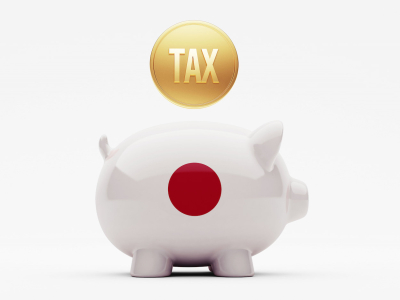
Ruling coalition’s tax reform for FY 2021 announced: Fiscal support for digital transformation and environment

Japan’s ruling coalition’s tax reform plan for fiscal year 2021, the first under PM Suga, lays focus on supporting digital transformation (DX) and environmental measures.
With the shortcomings in the digital infrastructure coming painfully to the fore earlier this year, confronted with the fallout of the COVI-19 pandemic, the Suga cabinet, plans to introduce fiscal measure to support business with their efforts to introduce IT-innovations. Investments in IT infrastructure and software R&D are to be made deductible from the corporate tax burden. A new tax system will make a maximum of 5% deduction of the costs for DX-related infrastructure investments possible for the coming 2 years. The measure is meant to support companies to develop services by common usage of data in cloud-based systems and to increase efficiency in their business activities.
The government is expected to introduce a system where it approves investment plans for IT equipment and software. To gain preferential treatment companies will have to invest the equivalent of at least 0.1% of their annual turnover, have cyber security audits and be able to show productivity improvement goals by means of DX.
Currently the ratio of companies that are taking DX related measures is only have that of the US, reports Nikkei Online. Also, there are fears that rushed introduction is not leading to the desired results.
Fiscal stimulation of R&D of software is expected to be included to promote development of software which is not directly tied to hardware, such as AI and autonomous driving control systems offered in a cloud environment.
Also, using cloud-based solutions will be one of the conditions, as many IT systems in Japan are presently scattered and rigid ‘legacy systems’ have suppressed the impact of IT investments thus far. By focusing on cloud-based IT, the government hopes business will take more company-wide approaches to IT investment and insert their DX efforts in their business strategies.
The maximum of R&D deductions is raised from the current 45% to 50%, and particularly aimed at companies whose turnover has been affected by COVID-19.
Environmental protection will be fiscally supported with the introduction of higher standards for eco-cars in order to obtain a more friendly fiscal treatment. Electric vehicles and hybrid vehicles are to receive tax relief at the first and second time shaken (automobile inspections), while clean diesels cars for the coming two years get fiscal reprieve only if they meet high fuel efficiency standards, for other combustion engine cars, fiscal treatment will depend on the degree of meeting fuel efficiency standards. Cars that are below the new 25.4 km/l fuel efficiency standard will receive only one time tax relief or less.
Source: Nikkei online (J)
